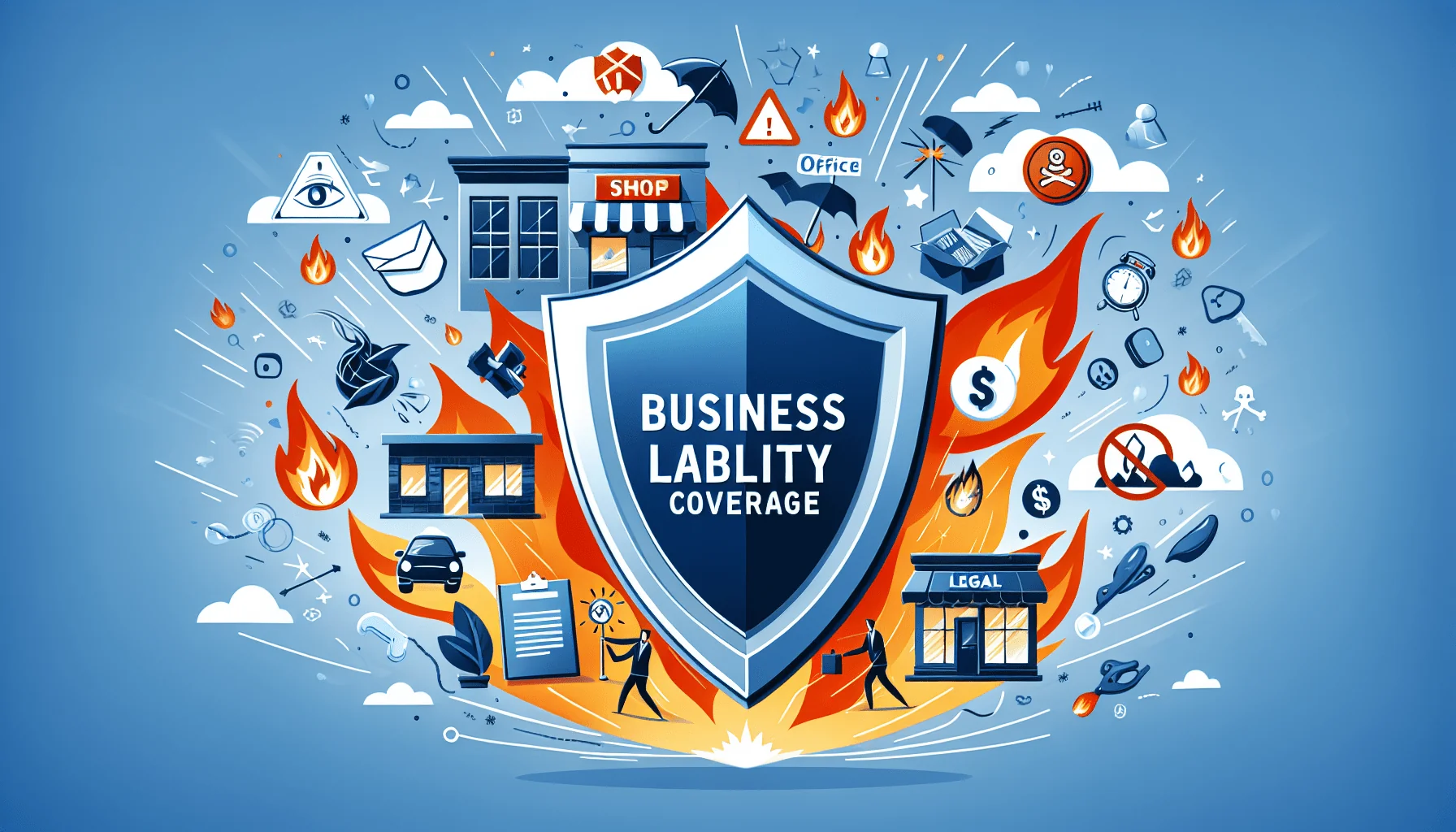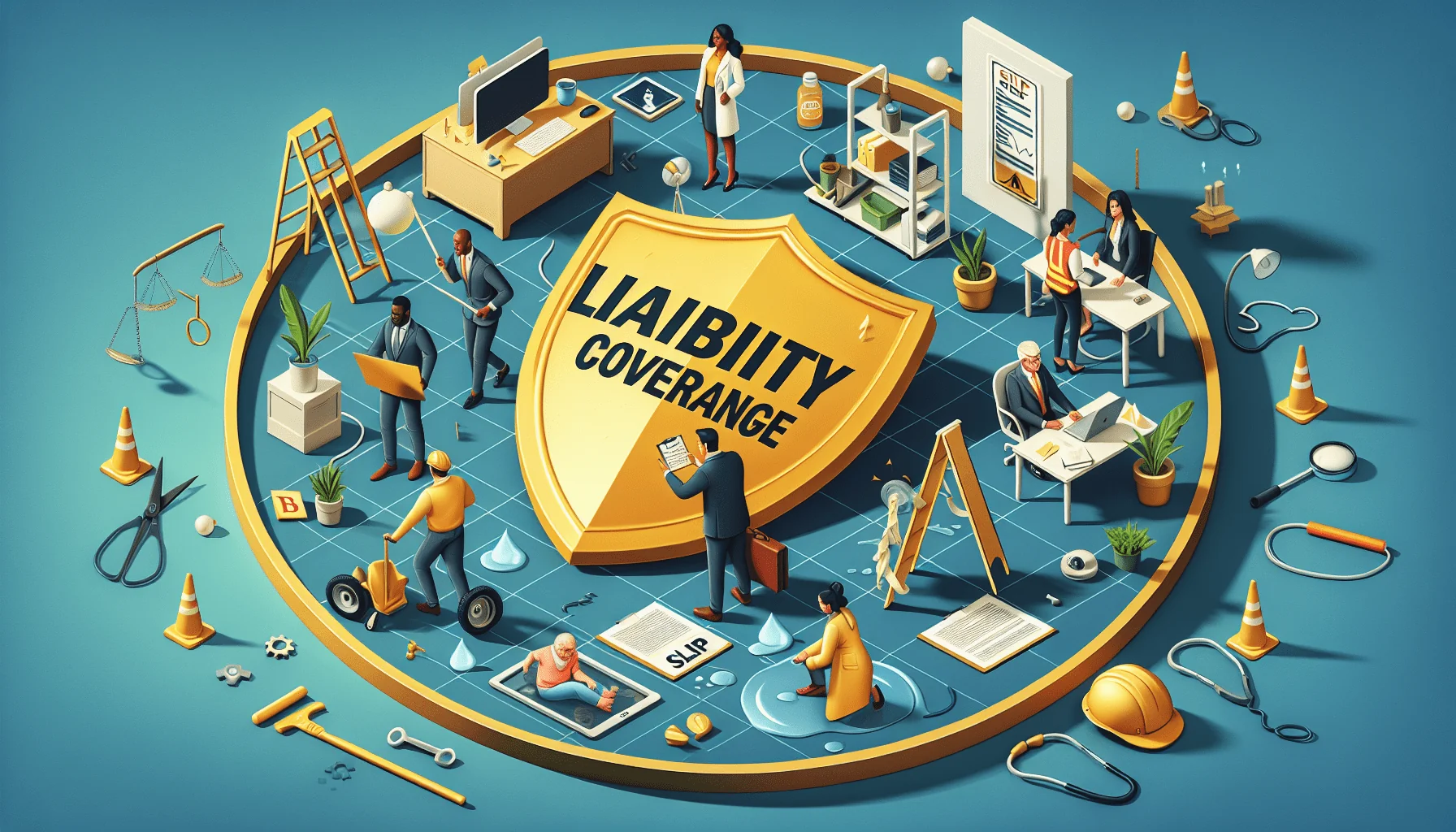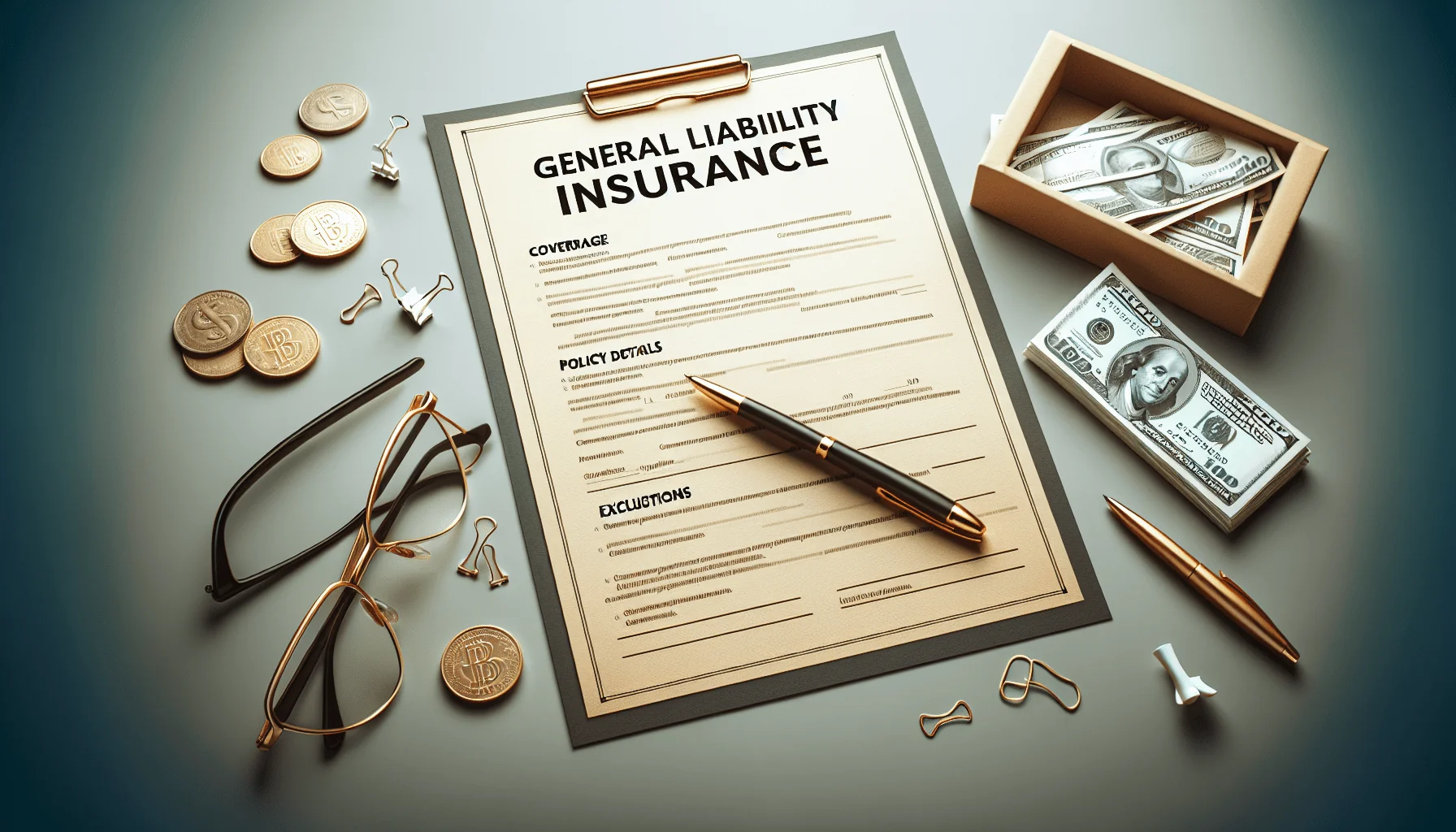How much liability coverage do you really need?

Liability Coverage
Liability coverage serves as an essential pillar of any insurance policy, providing you with a vital layer of financial protection against claims stemming from injuries or property damage you might unintentionally cause to others.
This crucial component of your policy is designed to cover legal expenses and any court-awarded damages, up to the specified coverage limits, in the event you are deemed legally accountable for an accident or other unforeseen incident.
Determining the appropriate level of liability coverage requires striking a careful balance between safeguarding your assets and keeping your insurance costs manageable.
This decision largely depends on several factors, including your individual risk tolerance, the total value of your assets, and the potential magnitude of claims or financial losses you could encounter. Ensuring adequate coverage is essential to protect yourself from unexpected liabilities while also maintaining affordability.
In the fast-paced and unpredictable landscape of today’s business environment, safeguarding your company against unforeseen risks is more critical than ever. Securing dependable liability insurance stands out as one of the most effective strategies to protect your business from potential challenges and unexpected setbacks.
Liability coverage helps protect your business from the costs of lawsuits, accidents, and unexpected risks. It covers legal fees, settlements, and medical bills linked to these events.
By investing in tailored insurance solutions, you can secure peace of mind, knowing that your business’s assets and reputation are well-defended against the vagaries of the commercial world.
This detailed guide explores critical elements related to business liability protection, addressing frequent concerns and equipping you with insightful knowledge. It also provides practical strategies and actionable recommendations specifically designed to meet the unique needs of entrepreneurs navigating today’s competitive market.
Q&A Section:
What is regular authorized legal responsibility protection, and why is it obligatory for firms?

Regular authorized legal responsibility coverage, often referred to as general liability insurance, acts as a fundamental shield for businesses against the myriad of risks they encounter daily.
This form of coverage is essential as it protects companies from the financial burdens that can arise from claims of bodily injury, property damage, and even advertising injury that occur as a result of the business’s operations.
Without it, a single lawsuit or liability claim could potentially bankrupt a small business or significantly impair the financial stability of larger corporations, making it an indispensable component of a company’s risk management strategy.
General obligation insurance coverage serves as a vital safeguard for companies by offering protection against a variety of claims, including those related to bodily injury, property damage, and personal offenses such as slander or libel.
In the complex landscape of business operations, AI personalization can significantly enhance the effectiveness of general obligation insurance. By leveraging advanced algorithms and machine learning techniques, insurers can tailor policies to the specific needs and risk profiles of individual companies.
This not only ensures more comprehensive coverage for the insured but also optimizes the underwriting process, leading to more competitive pricing and improved customer satisfaction.
This type of coverage is critically important because it not only assists in covering legal expenses and potential settlements but also ensures that your business maintains its financial stability when unexpected incidents occur, helping to mitigate potentially devastating financial risks.
What does regular authorized legal responsibility protection typically cover?

Regular authorized legal responsibility coverage, commonly known as general liability insurance, typically covers a range of potential risks and liabilities that businesses face.
This includes protection against claims of bodily injury or property damage that occur on the company’s premises or as a result of its operations.
It also extends to cover advertising injury claims, such as slander and libel, as well as the costs associated with defending lawsuits, including settlements and judgments awarded by courts.
Generalauthorized legal responsibility insurance coverage protection typically provides coverage for a wide range of potential risks and liabilities, including but not limited to:
- Bodily injury and property damage that may occur on a business’s premises or as a result of its operations are among the primary concerns covered by general liability insurance. This coverage is essential for businesses that interact with customers or clients in a physical location, as it can protect against claims arising from accidents or injuries.
- Furthermore, general liability insurance often extends to cover reputational harm, such as libel or slander, ensuring that businesses are safeguarded against the financial repercussions of damaging allegations or statements. Bodily harm to third parties
- Given the complexity of potential risks, it is crucial for businesses to assess their specific needs when considering general liability insurance coverage. This type of insurance can be tailored to fit the unique demands of different industries, accounting for the varied nature of interactions with clients, customers, and the general public.
- By taking a proactive approach to risk management, companies can mitigate the potential for costly legal disputes and focus on their core operations with greater peace of mind.Damage to third-party property
- In the realm of AI personalization, the technology’s ability to adapt and respond to individual user preferences is revolutionizing the customer experience.
- This level of customization not only enhances user engagement by providing tailored content and recommendations but also significantly increases the efficiency of marketing strategies.
- By leveraging data-driven insights, AI can anticipate customer needs and deliver solutions before a potential issue becomes a pain point, thereby reinforcing brand loyalty and trust.Legal protection and settlement costs
- However, the implementation of AI personalization must be navigated carefully to ensure it aligns with privacy regulations and ethical standards.
- As AI systems collect and analyze vast amounts of personal data, businesses must prioritize transparency and consent to maintain consumer trust.
- By doing so, they not only adhere to legal requirements but also foster a more respectful and secure relationship with their customers, which is crucial in a digital landscape where privacy concerns are ever-increasing. Personal and selling hurt
Are there any exclusions, usually authorized legal responsibility protection?

In the realm of AI personalization, it is essential for organizations to navigate the fine line between customization and intrusion. While personalized experiences can significantly enhance customer satisfaction and engagement, they must be balanced with the imperative to protect user privacy.
Companies must implement robust data governance policies and employ AI solutions that are transparent and accountable, ensuring that personalization efforts do not overstep ethical boundaries or contravene data protection regulations. Yes, frequent exclusions commonly include:
- To navigate these challenges, it’s essential for businesses to strike a balance between personalization and privacy. This requires a nuanced approach to data collection, where user consent is paramount, and the amount of data gathered is proportional to the personalization benefits delivered.
- Furthermore, employing anonymization techniques and differential privacy can help mitigate risks associated with data breaches, while still allowing for the extraction of valuable insights to tailor user experiences effectively. Employee accidents (covered by staff’s compensation insurance coverage)
- AI-powered personalization on digital platforms must balance customized experiences with user autonomy. Providing users with control over their data and the option to disable personalized features is crucial.
- Transparent communication about how AI algorithms use personal data can foster trust and allow users to make informed decisions about their level of engagement with personalized services.
- By prioritizing ethical considerations and user consent, companies can ensure that AI personalization enhances the user experience without compromising privacy and agency. Professional errors (coated by expert obligation insurance coverage)
- Intentional acts or illegal actions
How can I resolve the exact safety amount for my enterprise?
To ensure your organization maintains an appropriate level of safety when integrating AI personalization, it is crucial to conduct a thorough risk assessment. This process involves identifying potential vulnerabilities in your data management practices and understanding the specific types of personal information you will be collecting.
By evaluating the sensitivity of the data and the potential impact of a breach, you can establish the necessary security measures and decide on the insurance coverage that aligns with the level of risk your business is willing to accept. The specific amount of protection required will be influenced by a range of important factors, including:
- When considering the level of cybersecurity insurance needed, it’s essential to evaluate the sensitivity of the data your business handles. For instance, companies dealing with financial records, personal health information, or other personally identifiable information (PII) may require higher coverage due to the increased risks associated with a data breach.
- Additionally, the size of your customer base and the potential reputational damage that could arise from an incident should also be factored into your insurance decision-making process. The measurement and nature of your online enterprise
- May significantly influence the level of coverage you need. For instance, if your platform relies heavily on customer data to tailor experiences and recommendations, the volume and sensitivity of that data could heighten the risk of cyber threats.
- It’s essential to work with insurance providers who understand the intricacies of AI personalization and can offer policies that protect against the specific vulnerabilities of your technology-driven services.
- This targeted approach ensures that your insurance is not just a safety net, but a strategic component of your overall risk management plan. Potential risks associated with your commerce
- Utilizing AI personalization in your insurance strategy allows for a deeper understanding of the unique risks associated with your business operations.
- Advanced algorithms analyze extensive datasets to uncover patterns and forecast potential problems before they arise, allowing for proactive measures to be taken.
- This fortifies your business against unforeseen events, optimizes your insurance premiums by tailoring coverage to match your actual risk profile, rather than a one-size-fits-all policy.
- Legal requirements in your area
Consulting with an insurance coverage protection advisor will help you tailor a protection that meets your needs.
Can small firms afford regular authorized liability protection?

Certainly, small businesses often grapple with budget constraints, but regular authorized liability protection should be viewed as an essential investment rather than a prohibitive cost.
These policies act as a vital safeguard, defending a small firm’s financial stability and reputation from potential legal claims and disputes.
Moreover, the market offers a range of options tailored to various budgets and risk levels, ensuring that even the smallest enterprises can access the necessary legal protection without breaking the bank. Absolutely.
Many insurance providers offer flexible policies designed to meet unique needs and budgets of small businesses.
Liability insurance helps business owners protect against major financial risks, keeping their operations safe and stable.
Table: Comparison of Liability Insurance Types
| Insurance Type | Coverage Highlights | Ideal For |
|---|---|---|
| General Liability Insurance | Covers third-party accidents and property injury | Professionals akin to attorneys, accountants, and consultants |
| Professional Liability Insurance | Covers errors and omissions in expert firms | Manufacturers, retailers, and distributors |
| Product Liability Insurance | Covers harm introduced by merchandise manufactured or purchased | Manufacturers, retailers and distributors |
Conclusion:
In a constantly evolving marketplace, the significance of tailoring insurance policies to the specific needs of businesses cannot be overstated. AI personalization stands at the forefront of this revolution, offering bespoke solutions that not only enhance coverage but also streamline the risk assessment process.
By harnessing the power of artificial intelligence, insurers can now predict potential risks with greater accuracy, ensuring that manufacturers, retailers, and distributors alike are equipped with the precise level of protection required for their unique operations. Investing typically in legal responsibility insurance coverage is a strategic switch for any enterprise proprietor.
Determine your safety needs and explore various insurance coverage options to protect your online business from unforeseen risks and ensure its enduring success.
For further information, contact reputable insurance coverage protection suppliers or seek the advice of a licensed insurance coverage protection advisor to make educated choices.
External Links:
Final Call to Action:
When considering AI personalization in insurance, it’s crucial to understand the potential benefits it brings. By leveraging cutting-edge algorithms, insurance companies can tailor policies and services to fit individual needs, offering a more intuitive customer experience.
This simplifies getting the best coverage, giving clients personalized care and customization beyond traditional methods.
To ensure your online business is thoroughly safeguarded against potential risks, take the time to carefully review your existing insurance policies and seek advice from a knowledgeable professional.
By acting decisively and proactively today, you can shield your business from significant financial setbacks and unforeseen challenges that may arise in the future.
Pet Dental Insurance Secrets Every Owner Should Know!
National General Insurance: Comprehensive Coverage for Auto, Home, and More



